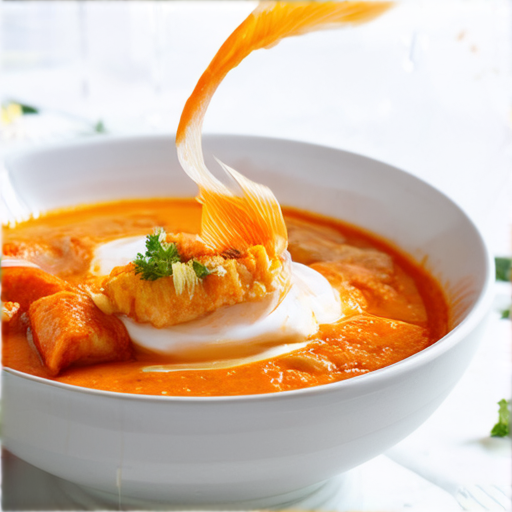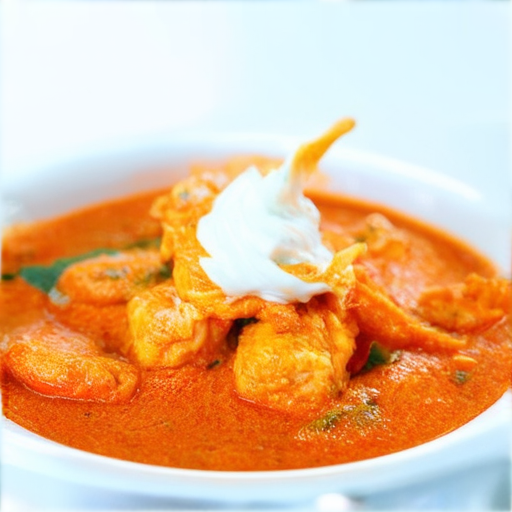Fish curry is a beloved dish across many cultures, known for its rich flavors and aromatic spices. One ingredient that often piques curiosity is yogurt—can it truly elevate a fish curry? While some may wonder if yogurt pairs well with fish, others swear it adds a unique twist, balancing the heat of the spices and providing a creamy texture that complements the delicate fish. In this article, we’ll explore how yogurt can transform a traditional fish curry into a delightful meal, examining its culinary benefits, cultural significance, and practical applications. From mitigating bitterness to creating a smoother curry, yogurt emerges as a versatile ingredient that enhances both taste and nutrition. Whether you’re a seasoned cook or new to the kitchen, discover how yogurt can revolutionize your fish curry experience and unlock new possibilities in your cooking.

Can Yogurt Be Used in Fish Curry?
Yes, yogurt can be a delicious and nutritious ingredient in fish curry. It adds a unique tanginess to the dish, complementing the rich flavors of fish and spices. Here’s a simple guide to incorporating yogurt into your fish curry:
Steps to Make Yogurt Fish Curry
- Combine garlic, ginger, spices, and yogurt in a large bowl until smooth.
- Add the fish to the bowl and toss to coat evenly with the yogurt mixture.
- Allow the fish to marinate in the yogurt mixture for at least 30 minutes, or longer if possible.
- Heat oil in a large frying pan over medium-low heat.
- Add the marinated fish to the pan and cook until golden brown and cooked through.
- Garnish with fresh herbs and serve hot with rice or naan.
This method creates a flavorful and creamy base for your fish curry, enhancing the taste with the cooling effect of yogurt. For more detailed instructions and recipe ideas, visit our fish curry recipe page.
Why Choose Only Fish Recipes?
At Only Fish Recipes, we specialize in providing authentic and versatile fish curry recipes that cater to all tastes. Our collection includes traditional and modern twists, ensuring there’s something for everyone. Explore our complete list of fish curry recipes to find your next favorite dish.
Can You Use Yogurt in Curry?
Yes, yogurt can be a delicious and nutritious addition to curry. It adds a creamy texture and balances the heat of the spices. Here’s how you can incorporate yogurt into your curry:
- Types of Yogurt: Greek yogurt, plain yogurt, and even dairy-free alternatives like coconut yogurt work well in curries.
- Benefits: Yogurt thickens the curry, adds cooling contrast, and introduces probiotics and vitamins.
- Regional Variations: In Indian cuisine, yogurt is often used in raita (a spiced yogurt dip) to complement curries.
Recipe Idea: Creamy Chicken Curry with Yogurt
For a luscious twist, try this recipe inspired by Only Fish Recipes’ Fish Curry :
1. Heat oil in a pan, add cumin, coriander, turmeric, and ginger paste.2. Sauté onions until golden.3. Add tomatoes, cook until soft, and stir in coconut milk.4. Simmer for 10 minutes, then add chicken pieces.5. Cook until chicken is tender, then stir in Greek yogurt and adjust seasoning.6. Serve hot with rice or naan.This method works for other proteins too, like tofu or vegetables. Experiment with different yogurt types and spices for varied flavors. Enjoy your creamy, cooling curry!
Does Yogurt Go Well with Fish?
Yes, yogurt can be a delicious and healthy ingredient when paired with fish. It adds a tangy flavor and helps keep the fish moist during cooking. Here’s how yogurt works well with fish:
- Marinade Base:** Yogurt makes an excellent base for fish marinades. Its acidity helps tenderize the fish and enhances its natural flavor.
- Prevents Drying Out:** The creamy texture of yogurt prevents fish flesh from drying out, ensuring it remains juicy and tender.
- Flavor Enhancer:** When mixed with lemon juice, garlic, herbs, and spices, yogurt creates a flavorful marinade that complements various types of fish.
Recipe Ideas with Yogurt and Fish
Here are some tasty ways to incorporate yogurt into fish dishes:
- Grilled Fish Tacos:** Mix yogurt with lime juice, cucumber, and chili for a creamy taco topping.
- Baked Salmon:** Create a yogurt-based sauce with dill, lemon zest, and olive oil for a simple and nutritious dish.
- Yogurt-Dressed Fish Salad:** Combine yogurt with mayonnaise, pickles, and herbs for a refreshing salad dressing.
Tips for Using Yogurt with Fish
For the best results when using yogurt with fish:
- Mix yogurt with your preferred seasonings and herbs for a custom marinade.
- Add a touch of oil or butter to prevent the fish from sticking to the pan.
- Apply the yogurt mixture generously to ensure even flavor distribution.
By incorporating yogurt into your fish recipes, you can enjoy a healthier and more flavorful meal. Experiment with different combinations to discover your favorite yogurt-based fish dishes!

Can I Add Curd to Fish Curry?
Fish and curd (such as yogurt or sour cream) may not always be the best combination due to potential reactions between the ingredients. However, it is possible to safely incorporate curd into a fish curry with careful consideration of the following factors:
- Type of Fish: Certain fish, like mackerel or tuna, naturally contain higher levels of histamines, which can react with the lactic acid in curd. Other fish, such as salmon or cod, may be less reactive.
- Quantity and Preparation: Using a small amount of curd and adding it toward the end of cooking can minimize the likelihood of unfavorable reactions. This allows the flavors to meld without overpowering each other.
- Cultural Context: In some regional cuisines, like those from Kerala, curd is occasionally used in fish dishes, often in moderation and with specific ingredients to balance the flavors.
If you decide to try adding curd to your fish curry, experiment with small portions and taste as you go. Consider using non-dairy alternatives like coconut yogurt if you prefer a creamy texture without the potential for histamine reactions.
What Does Curd Do to Curry?
Curd is a dairy product made from milk, often used in cooking for its creamy texture. However, when added to curry, a dish that typically contains acidic ingredients like tomatoes and is often spicy, curd can react negatively due to the heat and acidity.
The acidity in curry can denature the proteins in the curd, causing it to separate and curdle. Additionally, the high temperature of the curry can destabilize the fat molecules in the curd, leading to uneven textures or clumping. This reaction can make the curry less smooth and creamy, affecting its overall consistency and flavor.
To prevent this from happening, consider the following:
- Add curd to cooler parts of the curry or mix it in gradually to avoid sudden temperature changes.
- Use full-fat milk when making curd, as it contains more fat, which may help stabilize the mixture in hotter dishes.
- Experiment with alternatives like coconut milk or plant-based creams, which can add creaminess without the same reactivity as dairy products.
By understanding how curd interacts with the components of curry, you can better control its performance in your recipes and achieve the desired texture and flavor outcomes.

How to Reduce the Bitterness in Fish Curry
Reducing bitterness in fish curry can be achieved through careful ingredient selection and cooking techniques. Here are some effective methods:
- Use a Pinch of Salt: Salt helps suppress bitter alkaloids in food, balancing flavors and enhancing sweetness.
- Choose Mild Fish: Opt for fish like tilapia or bass, which tend to be less bitter.
- Balance Spices: While spices like turmeric and cumin add depth, use them in moderation to avoid overwhelming bitterness.
- Add Fenugreek in Small Amounts: Fenugreek can add a nutty flavor but should be used sparingly to prevent bitterness.
- Cook Vegetables Gently: Overcooking onions and garlic can lead to bitterness. Cook them until just tender.
- Incorporate Bright Flavors: Add ginger and lemon zest to counterbalance bitterness with freshness.
- Simmer Longer: Allow the curry to simmer gently to allow flavors to meld and mellow out any harshness.
By following these tips, you can enjoy a well-balanced and flavorful fish curry without the overpowering bitterness.




0 Comments